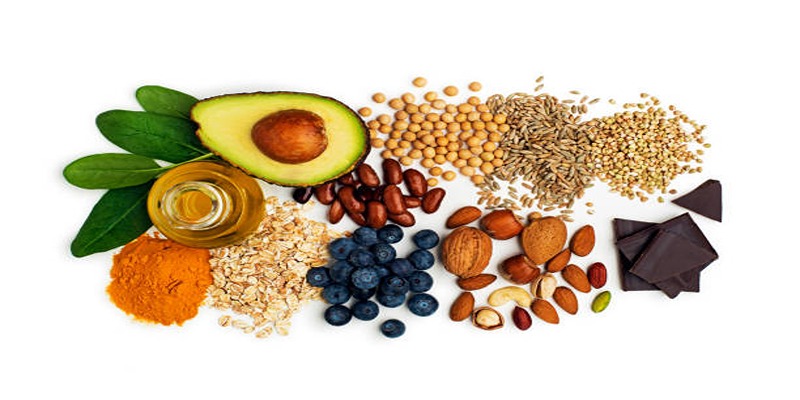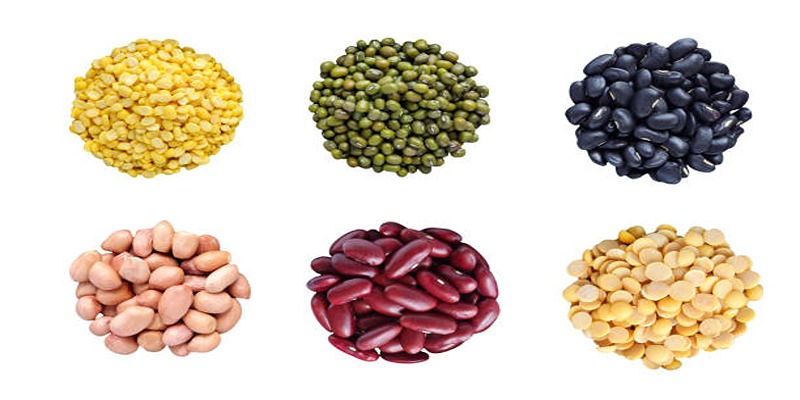Discover the Health Benefits of Chickpeas
Jul 09, 2024 By Nancy Miller
Chickpeas, also known as garbanzo beans, have been cherished for centuries for their rich nutritional profile and remarkable health benefits. These small, round legumes are a powerhouse of protein, fiber, and essential vitamins and minerals, making them a versatile addition to a variety of dishes. Regular consumption of chickpeas can contribute to improved digestion, enhanced heart health, and better blood sugar control. Whether you're looking to adopt a plant-based diet or simply boost your intake of nutrient-dense foods, chickpeas offer a delicious and satisfying option. In this guide, we'll explore the numerous health advantages of incorporating chickpeas into your daily meals, along with some tasty recipes to get you started.
Nutritional Profile of Chickpeas:

Chickpeas are an exceptional source of several key nutrients that contribute to overall health. A single cup of cooked chickpeas contains approximately 15 grams of protein and 12 grams of dietary fiber. They also boast significant amounts of essential vitamins and minerals, such as folate, iron, magnesium, phosphorus, and manganese. Folate is vital for DNA synthesis and repair, while iron is crucial for oxygen transport in the blood.
The high fiber content aids in digestive health by promoting regular bowel movements and preventing constipation. Additionally, the magnesium and potassium found in chickpeas help regulate blood pressure and support cardiovascular health. Their low glycemic index makes them suitable for maintaining stable blood sugar levels, benefiting individuals with diabetes. By including chickpeas in your meals, you not only enhance nutrient intake but also support multiple aspects of wellbeing, making them a valuable addition to a balanced diet.
Digestive Health Benefits:
- Rich in fiber - As mentioned, chickpeas are an excellent source of dietary fiber. The insoluble fiber in chickpeas acts as a natural laxative, promoting regular bowel movements and preventing constipation. On the other hand, soluble fiber helps feed the beneficial bacteria in your gut, improving digestion and supporting overall gut health.
- Reduces inflammation - Chronic inflammation in the digestive tract can lead to digestive issues such as bloating, gas, and discomfort. The high levels of antioxidants found in chickpeas help combat this inflammation and promote a healthy gut environment.
- Prevents digestive disorders - Research shows that consuming chickpeas can help prevent digestive disorders such as irritable bowel syndrome (IBS) and diverticulitis. The fiber, protein, and beneficial compounds found in chickpeas contribute to these protective effects.
Weight Management Benefits:
- High satiety - Chickpeas have a high protein and fiber content, both of which are essential for increasing feelings of fullness and reducing appetite. Including chickpeas in your meals can help you feel satisfied for longer periods, thus aiding weight management.
- Low calorie - Despite being high in nutrients, chickpeas are relatively low in calories compared to other protein sources such as meat and dairy. This makes them a great option for individuals looking to lose or maintain weight.
- Versatile ingredient - The versatility of chickpeas allows them to be incorporated into various dishes, from salads to soups and stews. This means you can enjoy the benefits they offer in several ways without getting bored with your meals.
Heart Health Benefits:
- Supports blood vessel health - The magnesium and potassium found in chickpeas play a crucial role in maintaining healthy blood pressure levels, which are vital for overall heart health.
- Rich in antioxidants - The high antioxidant content of chickpeas helps combat oxidative stress and reduce the risk of heart disease.
Chickpeas as a Plant-Based Protein Source:
Chickpeas serve as an invaluable protein source for vegetarians and vegans, offering around 15 grams of protein per cooked cup. This makes them an excellent alternative to animal-based proteins. Furthermore, chickpeas contain essential amino acids that support muscle growth, tissue repair, and overall bodily functions. Including chickpeas in your diet not only caters to protein needs but also supports a more sustainable lifestyle by reducing reliance on animal products.
From hummus and falafel to chickpea stews and salads, their versatility ensures that adding protein to a wide range of meals is both simple and delicious. Combining chickpeas with other plant-based foods, like whole grains or seeds, can create a complete protein profile, further enhancing their nutritional value.
Supporting Bone Health:
Chickpeas contribute significantly to bone health due to their rich mineral content, including calcium, magnesium, phosphorus, and manganese. Calcium is essential for maintaining strong bones and teeth, while magnesium supports bone formation. Phosphorus works in conjunction with calcium to build bones, and manganese plays a crucial role in bone metabolism. Regular consumption of chickpeas can help prevent conditions like osteoporosis and promote overall skeletal strength.
Moreover, the presence of vitamin K in chickpeas further supports bone health by regulating bone mineralization and reducing the risk of fractures. Including chickpeas in your diet ensures that your body receives essential nutrients needed for maintaining and improving bone density and resilience.
Blood Sugar Regulation:
- Studies have shown that chickpeas can help regulate blood sugar levels due to their low glycemic index and high fiber content. The slow release of glucose into the bloodstream prevents spikes in blood sugar levels, making them a suitable option for individuals with diabetes.
- Improves insulin sensitivity - Insulin resistance is a significant risk factor for type 2 diabetes. The protein and fiber found in chickpeas help improve insulin sensitivity, reducing the likelihood of developing this condition.
- Beneficial for gestational diabetes - Gestational diabetes affects some pregnant women and can lead to complications during childbirth. Regular consumption of chickpeas can help prevent and manage gestational diabetes due to their low glycemic index and high nutrient content.
Delicious Recipes Featuring Chickpeas:

- Mediterranean Chickpea Salad:
- Ingredients: Chickpeas, cucumbers, tomatoes, red onions, olives, feta cheese, parsley, olive oil, lemon juice, salt, and pepper.
- Instructions: In a large bowl, combine the chickpeas, chopped vegetables, and olives. Add crumbled feta cheese and parsley. Drizzle with olive oil and lemon juice, then season with salt and pepper to taste. Toss well and serve chilled.
- Spicy Chickpea Curry:
- Ingredients: Chickpeas, coconut milk, onions, garlic, ginger, tomatoes, curry powder, cumin, coriander, turmeric, salt, and cilantro.
- Instructions: Saut onions, garlic, and ginger until fragrant. Add spices and cook for a minute. Stir in tomatoes, chickpeas, and coconut milk, then simmer for 20 minutes. Season with salt and garnish with cilantro before serving with rice.
Conclusion:
Chickpeas are a powerhouse of nutrition, offering various health benefits that make them a valuable addition to any diet. From promoting digestive health and aiding in weight management to supporting heart health and bone strength, their nutrient-rich profile is hard to beat. As a versatile and sustainable plant-based protein source, chickpeas cater perfectly to vegetarians, vegans, and anyone looking to reduce their reliance on animal products. Additionally, their ability to regulate blood sugar levels makes them an excellent choice for individuals managing diabetes. Incorporating chickpeas into your meals, whether through salads, curries, or other delicious recipes, can significantly enhance your overall well-being and nutritional intake.







